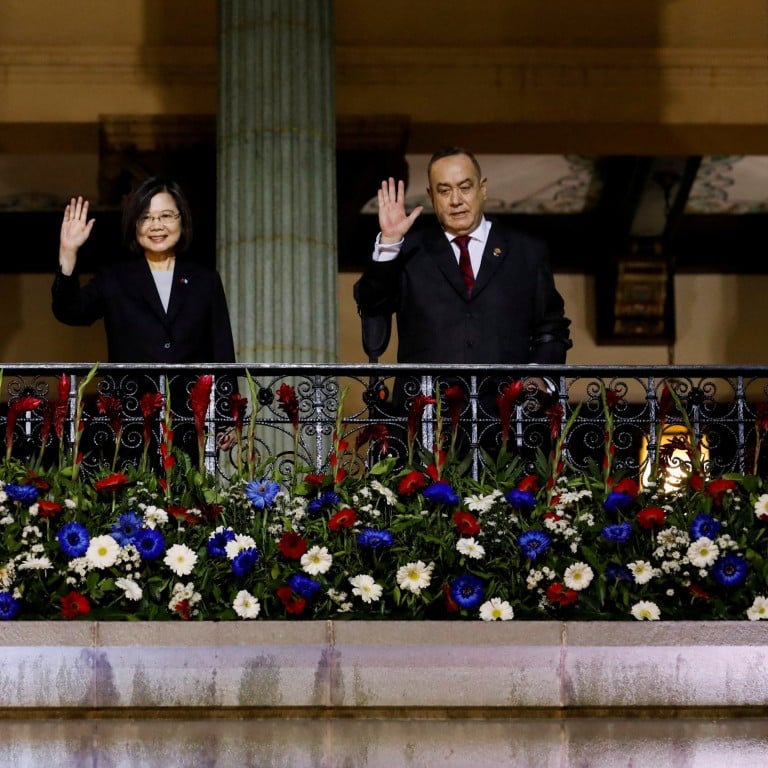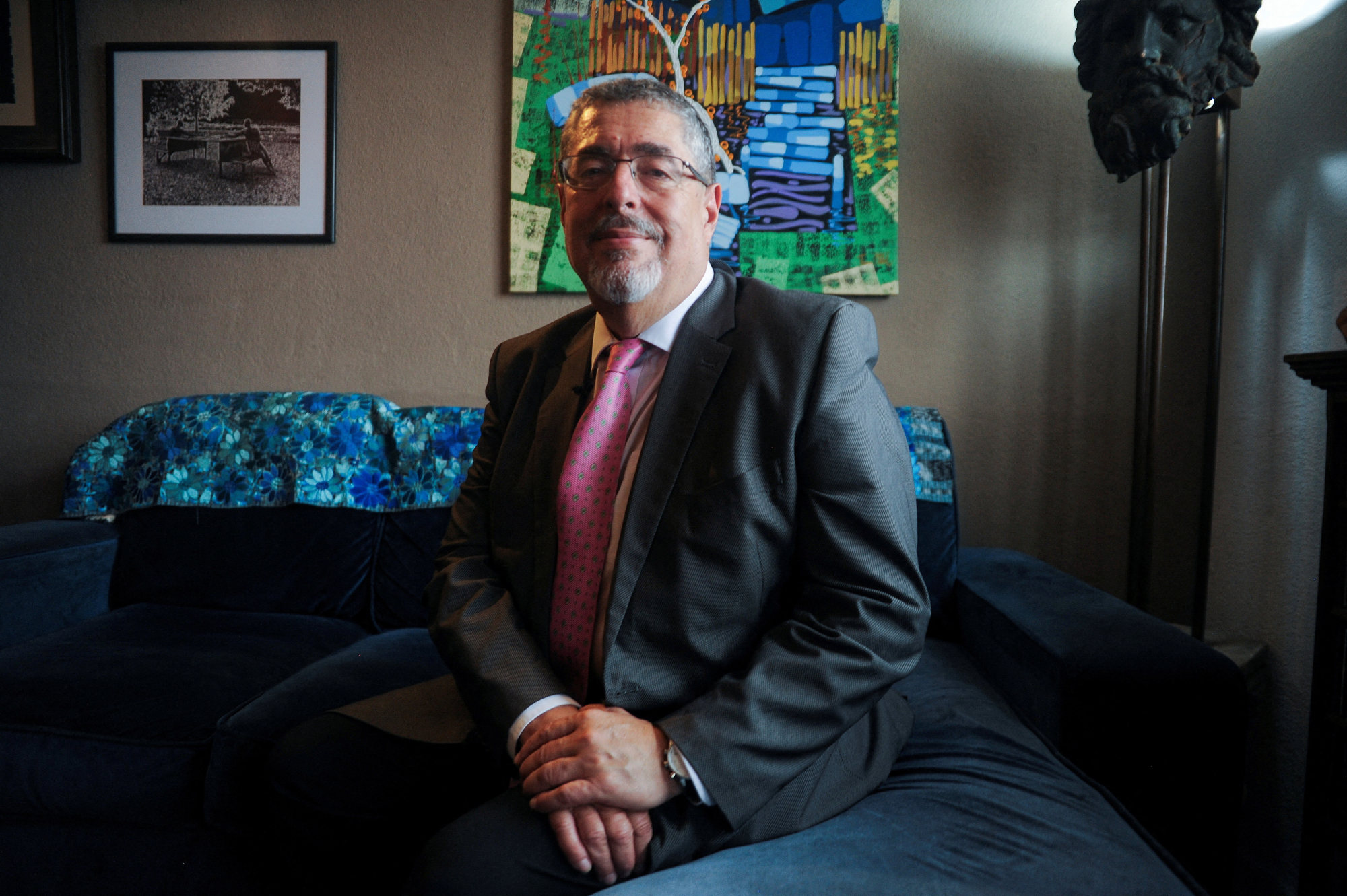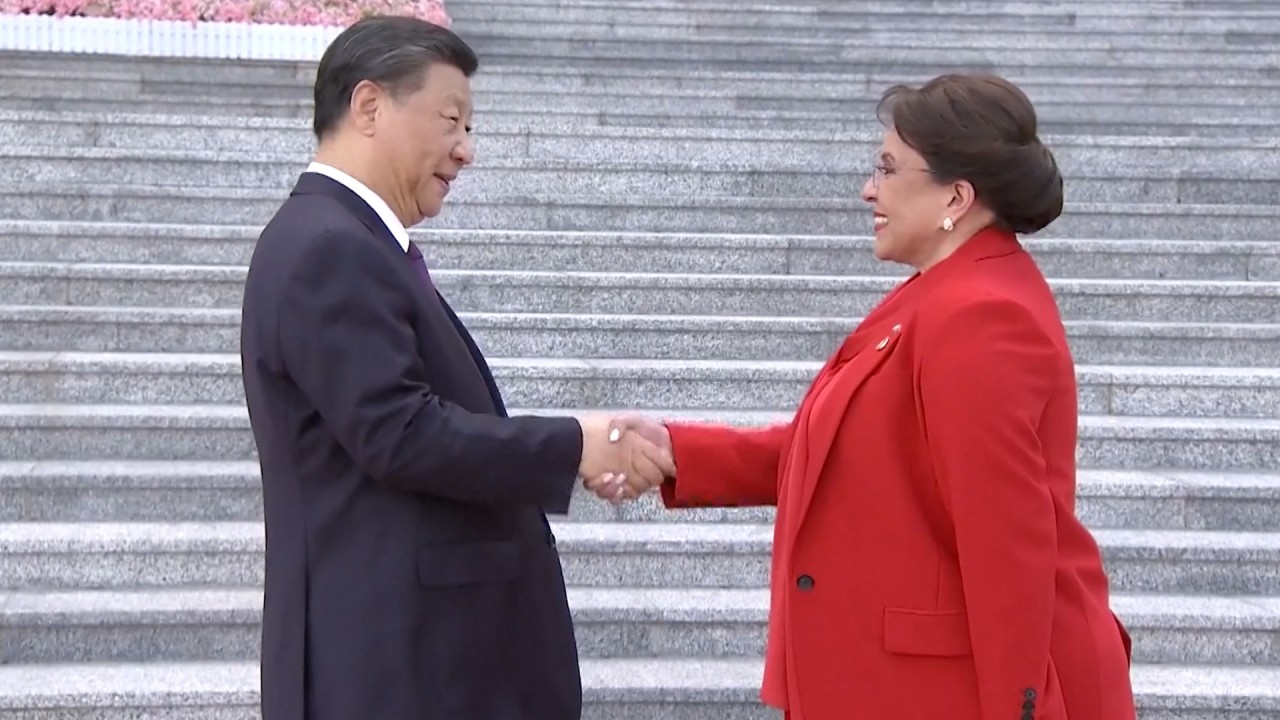
Taiwan keeps close watch on Guatemala presidential run-off, after losing Honduras to Beijing in March
- Guatemala is among Taiwan’s 13 remaining allies and one of only two in Central America after Honduras cut ties
- Centre-left candidate Bernardo Arevalo, who will be facing former first lady Sandra Torres in the August 20 run-off, has promised closer ties with Beijing
Presidential elections were held in Guatemala on June 25. However, none of the 22 candidates managed to cross the 50 per cent mark and the top two finishers will be facing off again next month.
One of them is pro-Beijing former diplomat Bernardo Arevalo of the centre-left Semilla party, who fought on an anti-corruption platform to finish a surprise second, with nearly 12 per cent of the vote.
Contesting him will be Sandra Torres of the social-democratic National Unity of Hope. The veteran politician and former first lady, who finished first with 16 per cent of the vote, has vowed to carry on with incumbent President Alejandro Giammattei’s policy of formal relations with Taiwan.

Torres, who has faced corruption allegations herself, was among three establishment figures seen as front runners in last month’s race.
Giammattei was not in the fray for a second four-year term as the Guatemalan constitution prohibits re-election.
Taiwan said its embassy in Guatemala had congratulated the two leading candidates as soon as the results of the June 25 elections were released.
“The [Taiwanese] foreign ministry is closely watching the development of the second round of the election on August 20, and will continue to explain and brief the two candidates on the fruits and visions of cooperation in order to consolidate bilateral friendship and ties,” ministry spokesman Jeff Liu said on Thursday.
He said long-time diplomatic relations between Taiwan and Guatemala had helped to nurture multiple exchanges between the government and private sector on either side.
Beijing sets up formal ties with Honduras in yet another blow for Taiwan
Bilateral cooperation extended across various sectors, including trade, the economy, agriculture, infrastructure, medical care, social welfare and talent cultivation, and the efforts of Taiwan to help develop the Central American country had been widely recognised by the people of Guatemala, Liu added.
But Arevalo, the son of a former president, has promised closer ties with Beijing if elected.
“We need to work on our trade relations and expand them in the case of China,” Arevalo, 64, told a local radio station in the capital Guatemala City on June 27.
Guatemala needed to adopt “a foreign policy based on its own interests”, he said, adding that no one else but Guatemala had the right to “dictate the country’s position [on its choice of allies]”.
During her election campaign last year, Castro had backed setting up official ties with Beijing, but backtracked shortly after winning in November – only to break her promise again in March.
Beijing, which claims sovereignty over Taiwan, has for years been courting its allies in a bid to isolate the self-ruled island internationally.
The departure of Honduras has left Taiwan with just 13 allies, including the Vatican.
Honduras was also the ninth country to switch ties to Beijing since Tsai Ing-wen, representing Taiwan’s independence-leaning Democratic Progressive Party, was elected president in 2016.
Asked about Taiwan’s plan of action to encourage Guatemala to stay, including offering more aid, foreign ministry spokesman Liu said: “We will continue to work with the government in Guatemala to deepen our exchanges and cooperation and pursue the utmost interests for people of the two sides, regardless of who is elected [president].”
In March, Honduras denied reports that it had demanded US$2.5 billion in financial aid from Taipei before seeking to establish relations with Beijing.


